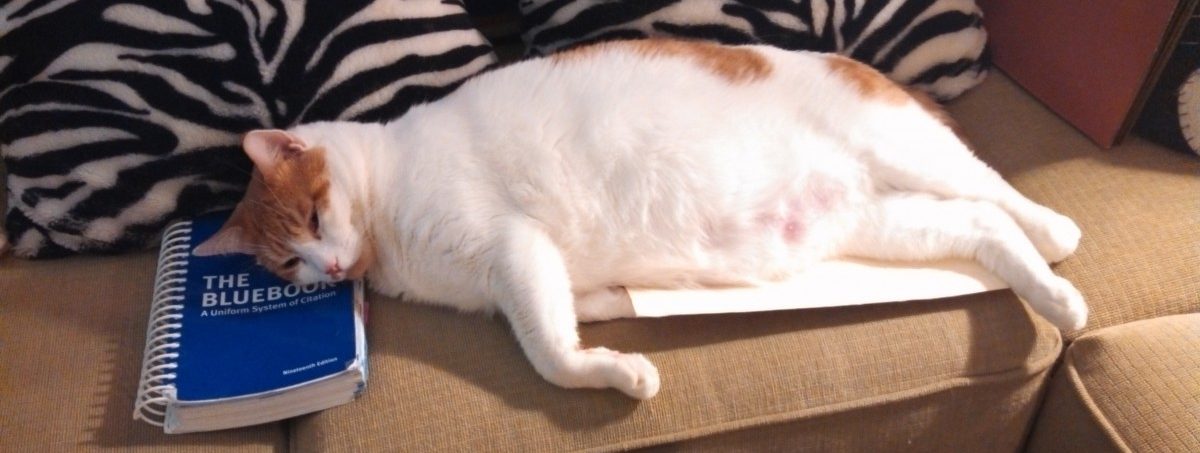Courses Taught
LAW 1101: Introduction to Paralegal Studies
Spring 2015, Fall 2015, Spring 2016, Fall 2016, Fall 2017, Fall 2019* (sample syllabus HERE!)
- 3 credits; 3 class hours; maximum 25 students
- An overview of the legal system and the role of the legal assistant within it; topics include career opportunities, sources of law, legal terminology, court systems, respective roles of attorney, client and paralegal, legal ethics, and interviewing techniques.
- In Fall 2016, my LAW 1101 class was covered by Prof. S. Schechter from October 18 to December 5, 2016, while I was on medical leave.
*In Fall 2019, I’m teaching this course as part of a First Year Learning Community with Prof. Carrie Hall’s ENG 1101 class. Here’s the syllabus. As it explains, a FYLC consists of two courses with the same students, in which faculty and students collaborate in various ways such as topics and assignments, all centered around an interdisciplinary theme. The theme of our FYLC is “Fight for Your Rights!” because legal practice is all about fighting for RIGHTS, and WRITING is a practitioner’s most powerful tool! See the FYLC OpenLab site for more information. Here is an example of a collaborative assignment in which we used an essay the student read and discussed in their class as the foundation for an exercise in “issue-spotting,” a key skill for any legal practitioner.
LAW 1103: Civil Law and Procedure
Fall 2014, Fall 2015, Spring 2017, Spring 2018 (sample syllabus HERE!)
- 3 credits; 3 class hours; maximum 25 students
- The theory and application of law and procedure in civil litigation, with emphasis on New York law; focus is on the role of the paralegal in preparing for litigation, including understanding the court system, steps and timelines, common litigation documents, and trial and post-trial procedures.
LAW 1201: Legal Research Course Coordinator since Fall 2016.
Fall 2014, Spring 2015, Fall 2015, Spring 2016, Spring 2018, Fall 2019 (sample syllabus HERE!)
- 3 credits; 3 class hours; maximum 20 students
- A working knowledge of the law library, including finding and reading statutes, cases and administrative regulations; validating sources; using legal encyclopedias, digests and other secondary authorities; and integrating these skills in written assignments.
LAW 2306: Legal Issues for Facility Managers (Spring 2017 – syllabus HERE!)
- 3 credits; 3 class hours; maximum 35 students
- Legal issues that affect facility management. Topics include principles of contracts, leases, service and employment agreements, purchase agreements, relevant federal and state laws, environmental and municipal regulations, liabilities of different legal entities, tort liability, media and group relations, debtor rights, business ethics and disability laws.
LAW 2307: Legal Research II (Spring 2017 – syllabus HERE!)
- 4 credits; 4 class hours; maximum 20 students
- Builds upon the working knowledge of the law library and research techniques mastered in LAW 1201, and applies those techniques by utilizing them in practical application. The student is introduced to the use of computerized legal research, and provided additional instruction in the use of citations. Focuses on analysis and evaluation of researched material, with a concentration on the writing aspect of reporting research.
LAW 2405: Tort and Insurance Law (Fall 2018 – syllabus HERE!)
- 3 credits; 3class hours; maximum 20 students; LAW 1201 prerequisite.
- Basic tort and insurance law as it relates to personal injuries. Addresses intentional torts, negligence, strict liability, fire insurance, and workers’ compensation, using specific examples and cases to illustrate the relevant legal principles; duties and obligations of parties, interviewing and factual investigation techniques, as well as the preparation of pleadings and the organization of personal injury cases.
LAW 4800: Advanced Legal Research (Spring 2017 – syllabus HERE!)
- 3 credits; 3 class hours; maximum 20 students
- A series of research, writing and oral assignments of increasing complexity on various topics of substantive law. Topics include legal analysis, preparation of outlines and rough drafts of legal documents such as appellate briefs, trial briefs and memoranda of law; correct use of citation, and proper legal research techniques. Particular emphasis is placed on oral and written presentation.
New Course Proposed! In Fall 2019, College Council’s Curriculum Committee is considering a new course I have designed and proposed with Prof. Alyssa Adomaitis of the Fashion Marketing program, titled “The Ugly Side of Fashion: History of Fashion Law.” Here’s the proposal. If accepted, the course would start running in Fall 2020 as a History course. We also plan to request approval for it to satisfy the interdisciplinary (ID) course requirement. Wish us luck! 🙂



